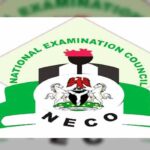
It is said that when God wants to punish a nation, he visits them with bad and corrupt judges. Perhaps, it is for this reason that at every opportunity since he came to office in 2015, President Muhammadu Buhari repeatedly says the nation’s judiciary is his major headache.
Apart from Buhari, a former president, Chief Olusegun Obasanjo, also said more than a decade ago that the judiciary was corrupt.
The outgoing Chief Justice of Nigeria (CJN) Justice Mahmuod Mohammed, had challenged lawyers to expose the corrupt judges, but till now, no lawyer has exposed any judge, either serving or retired.
The National Judicial Council (NJC) which is one of the bodies created by virtue of Section 153 of the 1999 Constitution appears to be weak in fighting judicial corruption.
The council was created to insulate the judiciary from the whims and caprices of the executive in order to safeguard its independence.
According to the NJC, from April 2000 to October 2016, only 132 judicial officers were investigated and sanctioned out of 808 petitions it received, 45 per cent of which were not addressed because the issues raised in the allegations were for the Court of Appeal to consider, and not the NJC.
“Over the years, the NJC thought it was probably doing its job as well as it should, but outside its chambers, the impression was growing that it was quite laid back at best, and was letting illicit lucre become the new currency for judicial justice. With respect to the NJC, its approach did not clearly create sufficient disincentives or deterrents against corruption,” Joseph Otteh, the Director, Access to Justice, said.
Otteh listed some of the weaknesses in the NJC’s approach to fighting corruption to include the burden it puts on complainants as well as the NJC’s disciplinary system which is petition- driven, not allegation-driven.
According to him, this means that even where damaging allegations against judicial officers are made public, unless there is a specific petition by someone against that officer, the NJC will not investigate the matter.
Otteh said the NJC, in terms of outcomes, was systematically offering soft-landings to persons found wanting.
He however added that lately, the NJC tightened the noose, referring judges for prosecution, but whether this represents a new perspective in the fight against judicial corruption in this respect needs to be ascertained.
However, to the Department of State Services (DSS), the NJC’s action recently referring the cases of three judges to the police over serious crime was too little, and perhaps too late.
Investigations revealed that there had been series of petitions against some judges who are perceived to be corrupt.
The petitions were not only sent to the National Judicial Council as it is alleged to have been shielding the judicial officers but sent to virtually every security agency that is seen to be proactive.
These petitions at any rate are still mere allegations because no matter how strong an allegation may be against anyone, it should not amount to proof, but in recent times, anyone arrested by the government over alleged corruption is in the eyes of the public guilty without trial.
While the NJC has backed the judges, insisting that the DSS was attempting to cow and intimidate the judiciary, the Presidency concluded that the actions of the DSS in the arrest and search of the premises of judges and justices can be placed firmly within the ambit of the law, sentimental and emotional considerations notwithstanding.
Justifying the arrest of the judges, the Presidential Review Panel said; “Nigeria is not the first country to investigate and prosecute erring judges that are suspected of commission of acts of crime. The Federal Bureau of Investigation (FBI) in the United States of America (a body similar to the DSS) had at various times, prominently in January 2013, May 2014 and November 2015, arrested a number of judges for bribery, corruption and other similar offences and subjected them to trial at the end of which the convicted ones were imprisoned. Nearer home, neighbors like Ghana and Kenya had also cleansed their respective judiciaries through investigation and prosecution of judges suspected of commission of corruption.”
With the divergent positions of the Presidency supporting the arrest and the NJC’s saying the raids were to humiliate and cow the judiciary, one awaits the next step that would be taken by the executive, whether or not it will go ahead to prosecute the judges.
It is for this reason that the recent ordeal judges are facing should not take anyone by surprise.
In the event that the trial of the judges goes ahead, the cases would still end up with the judiciary. The problem however is that Nigerians might no longer get judges to settle their disputes in the long run, which also leads to anarchy.
Perhaps the present predicament of the judges is poetic justice for people who were imprisoned on their orders. It is a situation where over 90 per cent of the nation’s prison population is made up of awaiting trial inmates, some of whom have stayed in prison longer than the period they would have served if jailed. Also in the prisons are sizeable numbers of “innocent prisoners”-infants whose mothers are awaiting trial.




